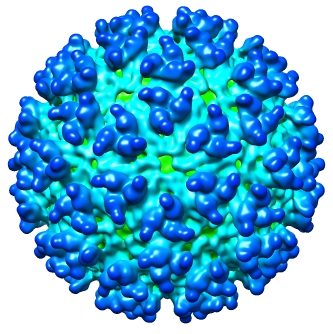"Informed AI News" is an publications aggregation platform, ensuring you only gain the most valuable information, to eliminate information asymmetry and break through the limits of information cocoons. Find out more >>
Evolution of Western Equine Encephalitis Virus and Its Implications
- summary
- score

Western equine encephalitis virus (WEEV) once caused severe outbreaks, but now rarely infects humans. A Harvard study in Nature reveals why: WEEV evolved to lose its ability to target human and horse cells. This shift correlates with reduced disease and death.
WEEV, part of the alphavirus family, uses spike proteins to attach to host cell receptors, then infects cells. Early WEEV strains could attach to multiple receptors, surprising researchers who thought viruses typically target one.
Recent WEEV strains lost this multi-receptor ability, focusing instead on bird receptors. This change might be due to vaccine-induced immunity in horses or random genetic mutations (antigenic drift).
The study highlights the importance of studying virus diversity over time and space. It warns against assuming viruses remain static. WEEV's resurgence in South America underscores the need for ongoing vigilance and research.
Understanding virus-host interactions is crucial for pandemic preparedness. The study provides tools to monitor and predict outbreaks, aiding in early response and prevention.
| Scores | Value | Explanation |
|---|---|---|
| Objectivity | 7 | Comprehensive reporting and in-depth analysis. |
| Social Impact | 4 | Strong social discussion, influencing some public opinion. |
| Credibility | 6 | Credible, verified independently and confirmed by multiple sources. |
| Potential | 5 | Very high potential to trigger a larger event. |
| Practicality | 5 | Extremely practical, widely applied in practice. |
| Entertainment Value | 2 | Slightly monotonous but includes a few entertaining elements. |